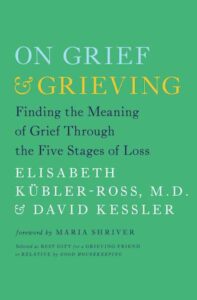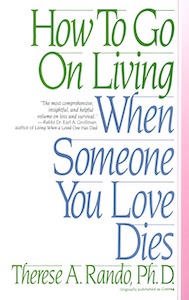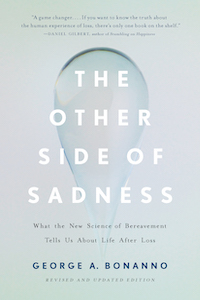As I write this article, it’s been three weeks since my father passed away. I am grieving.
And I know that I am not alone. This year, we have seen more loss than we could even imagine. It’s especially difficult to say goodbye when things decline quickly, and you are quarantined away. Since my family is out of state, it is also incredibly hard to move through the grieving steps when you don’t have the typical support mechanisms in place—a proper, and fully-attended funeral, extended time with family and simply an environment of normalcy.
But this site is dedicated to how books uplift us and while I try my best to always ensure each article, interview and review has a positive tone, I would be remiss in not addressing one of the most common challenges we are facing in 2020—grief.
And as I often do, I turn to books for guidance and support and want to share
with you six that I’ve found refuge in:
 It’s OK that You’re Not OK: Author Megan Devine is a writer, speaker and advocate for emotional change, holds a master’s in counseling psychology. In her book she asks the reader to think differently about their relationship with grief and explore what lies beneath. After validating and reframing grief from a problem to a process, she shows how you can compassionately move through your personal grief and pain in a healthier way.
It’s OK that You’re Not OK: Author Megan Devine is a writer, speaker and advocate for emotional change, holds a master’s in counseling psychology. In her book she asks the reader to think differently about their relationship with grief and explore what lies beneath. After validating and reframing grief from a problem to a process, she shows how you can compassionately move through your personal grief and pain in a healthier way.
Grieving the Loss of Someone You Love: Daily Meditations to Help You Through the Grieving: Sometimes support comes best in doses. This book by Raymond R. Mitsch and Lynn Brookside offers daily support through meditative devotions. Addressing the emotions and challenges of anger, sadness, fear and depression, the regular support and reflections are written to provide clarity, acknowledgement and comfort.
On Grief and Grieving: Finding the Meaning of Grief Through the Five Stages of Loss: This classic book on grief by Elisabeth Kübler-Ross and David Kessler is a classic tome for managing the process of grief. Building on their model, the five stages of grief—denial, anger,  bargaining, depression and acceptance—this book also shares practical advice for coping and processing. Additionally, this book, which compliments Kübler-Ross’s book On Grief and Giving, also includes managing other experiences associated with grieving such as dreams, hauntings, sadness and isolation.
bargaining, depression and acceptance—this book also shares practical advice for coping and processing. Additionally, this book, which compliments Kübler-Ross’s book On Grief and Giving, also includes managing other experiences associated with grieving such as dreams, hauntings, sadness and isolation.
How to Go on Living When Someone You Love Dies: This is just one of the many books on the topic of grief by Therese A. Rando, Ph.D. clinical psychologist, traumatologist and bereavement specialist. An expert in the field of loss and healing she begins by reassuring that we will all face grief in our lifetime and that few are prepared for the emotions it brings. She also reinforces that there is no right or wrong way to grieve and to recognizing and respect these differences is important both for the one suffering and for those who want to help. She offers guidance for understanding and resolving grief, selfcare, managing the memorial process, holidays and how to accept the of support of others. The transitory process of  losing a loved one, and all that comes along with it, is often too much to bear. In this book, Rando walks you through the process of how to honor your memories, cope with your reality, healthily manage your grief and find ways to move forward.
losing a loved one, and all that comes along with it, is often too much to bear. In this book, Rando walks you through the process of how to honor your memories, cope with your reality, healthily manage your grief and find ways to move forward.
Bearing the Unbearable: Love, Loss, and the Heartbreaking Path of Grief: Joanne Cacciatore, Ph. D. is a professor at Arizona State University and founder of the international nonprofit MISS Foundation, a nonprofit that helps families whose children have died or are dying. In this book she challenges the linear fashion of the grieving process and explores how we can honor the experience of grief. She shares stories and applicable observations from her work as a counselor, bereavement educator and Zen  Master supporting clients through their unique paths of grief.
Master supporting clients through their unique paths of grief.
The Other Side of Sadness: What the New Science of Bereavement Tells Us About Life After Loss: George A. Bonanno Ph.D. is an expert in the field of emotions and in his book he shares unique insights on how we process grief. Rather than moving through the traditional five stages, he offers that we have innate ability to be resilient and “that we are much more capable than we know.”
Images Courtesy of Random House, Basic Books & Seal Press, Scribner and Refuge In Grief


No comments yet.